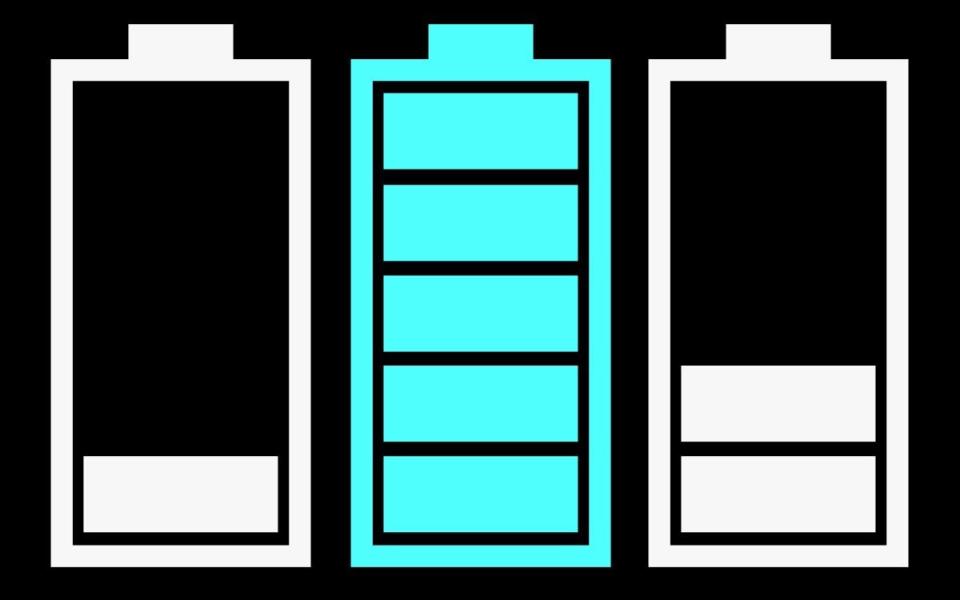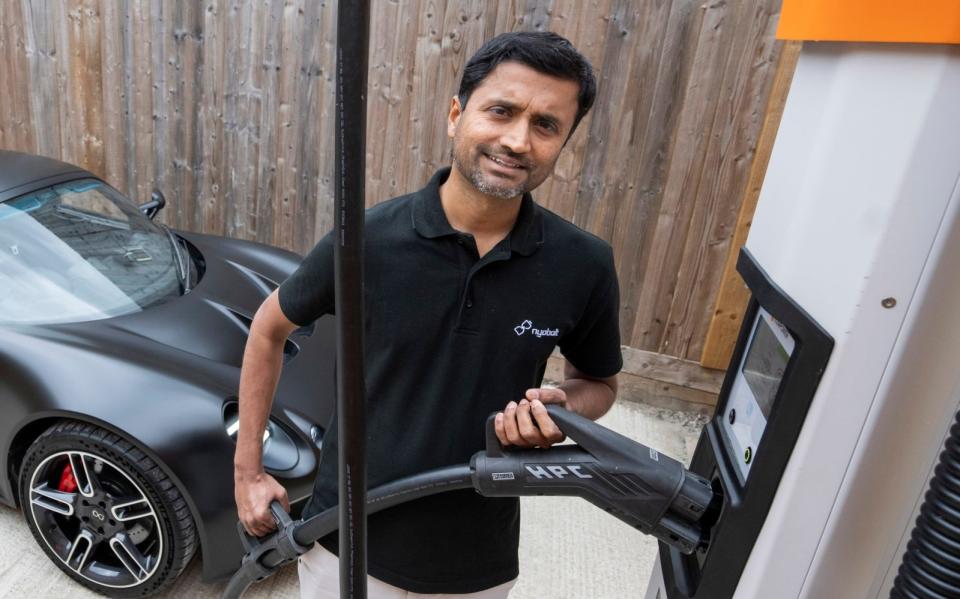Charge an electric car in five minutes? This Cambridge start-up says it can


A British battery company has developed an electric car that can be charged in just five minutes, in a step towards solving the lengthy plug-in times that frustrate EV drivers.
Cambridge-based Nyobolt unveiled the prototype vehicle, which has a 155-mile range, on Friday.
The company said it is in talks with eight carmakers about using the battery technology in high-performance vehicles, although it said mass manufacturing could enable it to become a feature of larger, family cars.
For the first time, the breakthrough promises parity with filling up a petrol car.
Evidence of the technology was on display at a test event on Thursday, during which it took less than five minutes to charge the battery from 10pc to 80pc.
The company said this was at least twice the speed of the fastest-charging vehicles currently on the market.
Lengthy charging times for electric cars, even at the fastest rapid stations, are often seen as an obstacle to sales, especially among motorists who cannot charge at home.
It takes 15 minutes to charge a Tesla Model 3 to around 80pc at the fastest speeds, while many vehicles take significantly longer.
Prolonged plug-in times also lead to electric cars taking up charging bays for drawn-out periods, meaning other drivers have to wait longer. This can fuel “range anxiety” among motorists, who fear they will be unable to recharge their batteries.
Nyobolt’s high-performance batteries, developed using research at the University of Cambridge’s chemistry department, use carbon and metal oxide materials in the anode – the part of the battery that releases electrons to a circuit that powers the car.
This allows it to be charged at higher speeds than car batteries without the risk of degradation or fire.
Typically, when batteries are charged at high voltages, the process produces resistance that develops into heat, which can damage a battery over time and, in extreme circumstances, lead to fires.
The risk means cars typically limit the rate at which they are charged, preventing them from taking advantage of the fastest “ultra-rapid” chargers. Batteries also tend to degrade over time, even with power management systems.
Nyobolt says its “low impedance” batteries are significantly less susceptible to this, meaning they can accept higher charging rates and would continue to work even after travelling hundreds of thousands of miles.
The company said tests show the battery could survive 4,000 fast-charge cycles – equivalent to travelling 600,000 miles – while retaining more than 80pc of its original capacity.
On Thursday, Nyobolt demonstrated the technology in a prototype car at the Millbrook Proving Ground in Bedfordshire, a vehicle-testing facility that has been used to film Top Gear and scenes for James Bond films.
The car used a Lotus Exige chassis retrofitted to include a battery, electric motor and charging port.
The car’s battery was charged from 1.7pc to 80pc in around five and a half minutes, and from 10pc to 80pc – the range at which electric cars are typically charged – in four minutes and 38 seconds.
Charging speeds decline significantly after cars hit 80pc to protect batteries, while the unusually warm weather slowed charging speeds.
Nyobolt says that under cooler conditions it has achieved a 0pc to 100pc charge in roughly six minutes, having publicised the technology last year.
The vehicle features a 35 kilowatt-hour (kWH) battery, smaller and lighter than the majority of EVs on the market today.
Tesla’s Model Y, Britain’s best-selling electric car last year, has a 60kWh battery pack on the cheapest model.
Nyobolt said its smaller batteries meant cars using it would be cheaper to buy and more efficient to run, reducing the weight of the entire vehicle. However, it could make larger batteries with more range in future.
It plans to sell its batteries to sports car manufacturers, where the smaller batteries would provide a weight advantage allowing better handling and performance.
Sai Shivareddy, the company’s chief executive, said Nyobolt would be able to make 1,000 of the batteries next year, which he said could feature in limited edition supercars.
He said: “We believe we are competitive for the ultra-premium end of the segment.”

Mr Shivareddy added that in future the company is aiming for mass production, which could enable the batteries to be used in family cars.
“If we are in the thousands of units then it’s only suitable at the premium end of the spectrum,” he said. “But as the volume goes up to hundreds of thousands of units a year, then the price parity [with other battery manufacturers] exists.
“I believe it’s possible in the next three to four years.”
He said the batteries would be suitable for drivers who were not able to charge at home, allowing them to recharge in the same way they fill up petrol tanks today.
“You can have the same experience that you get with small cars today where you may not be able to charge overnight,” he said. “But you can fill it up while you’re doing your weekly grocery shopping.”
Shane Davies, Nyobolt’s director of vehicle battery systems, said: “Nyobolt is removing the obstacle of slow and inconvenient charging, making electrification appealing and accessible to those who don’t have the time for lengthy charging times or space for a home charger.”
Electric vehicle sales in Britain have stalled in recent months amid concerns about high prices, rising insurance premiums and unreliable depreciation.
Electric cars accounted for 17.6pc of the market in May, according to the Society for Motor Manufacturers and Traders.
This was barely up from 16.9pc in the same period a year ago and below a government zero-emission mandate requiring 22pc of manufacturers’ cars sold this year to be electric.
However, taking advantage of faster-charging EVs would require an overhaul of Britain’s charging infrastructure. The Nyobolt charging demonstration used a 350kW charger, which is relatively rare in the UK.
Government statistics show that out of 53,677 public chargers in the UK in January, only 3,835 were defined as ultra-rapid, meaning they charged at 150kW or higher.
Charging speeds at home are limited by the supply to the charger itself, which is typically 7kW.
Mr Shivareddy said more high-powered chargers were needed and were being installed.
“You certainly need higher power chargers rolled out on the main highways because that’s where people really need to stop for long-distance journeys,” he said.
“In the UK, we do have more and more fast chargers that are being installed.”
Nyobolt was spun out of Cambridge University in 2016 by Mr Shivareddy and Dame Clare Grey, a chemistry professor at the university. The company’s batteries are already being used by an unnamed customer for robotics in US warehouses.

 Yahoo Finance
Yahoo Finance 